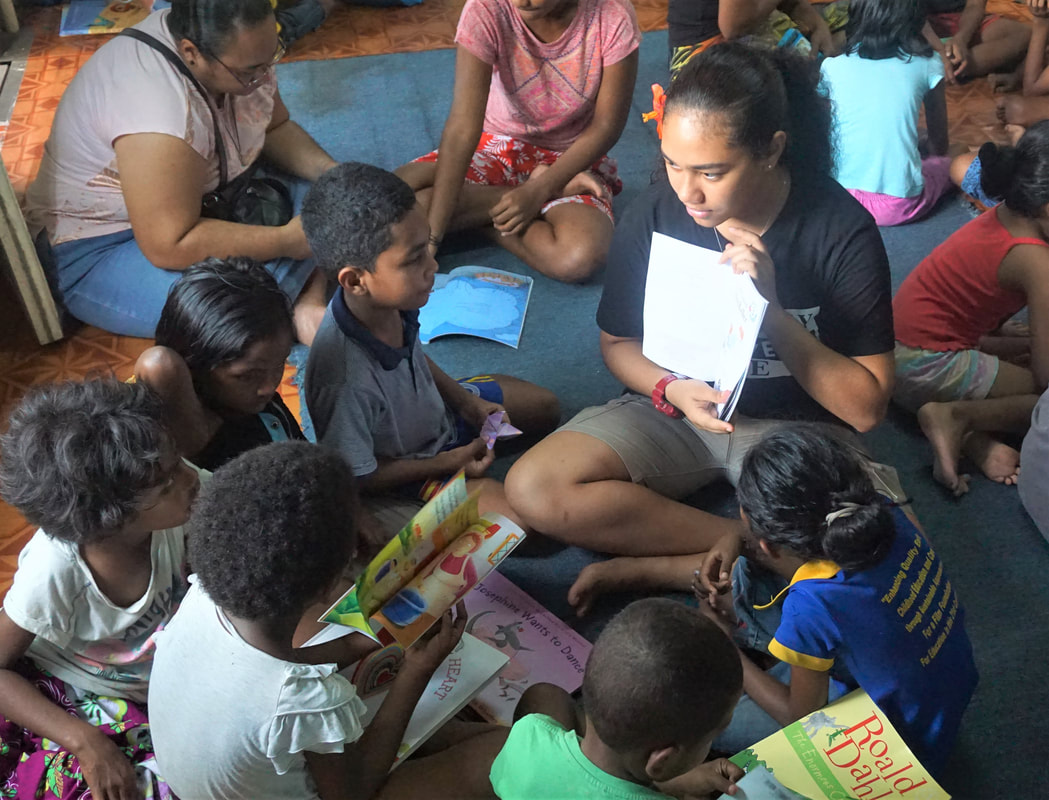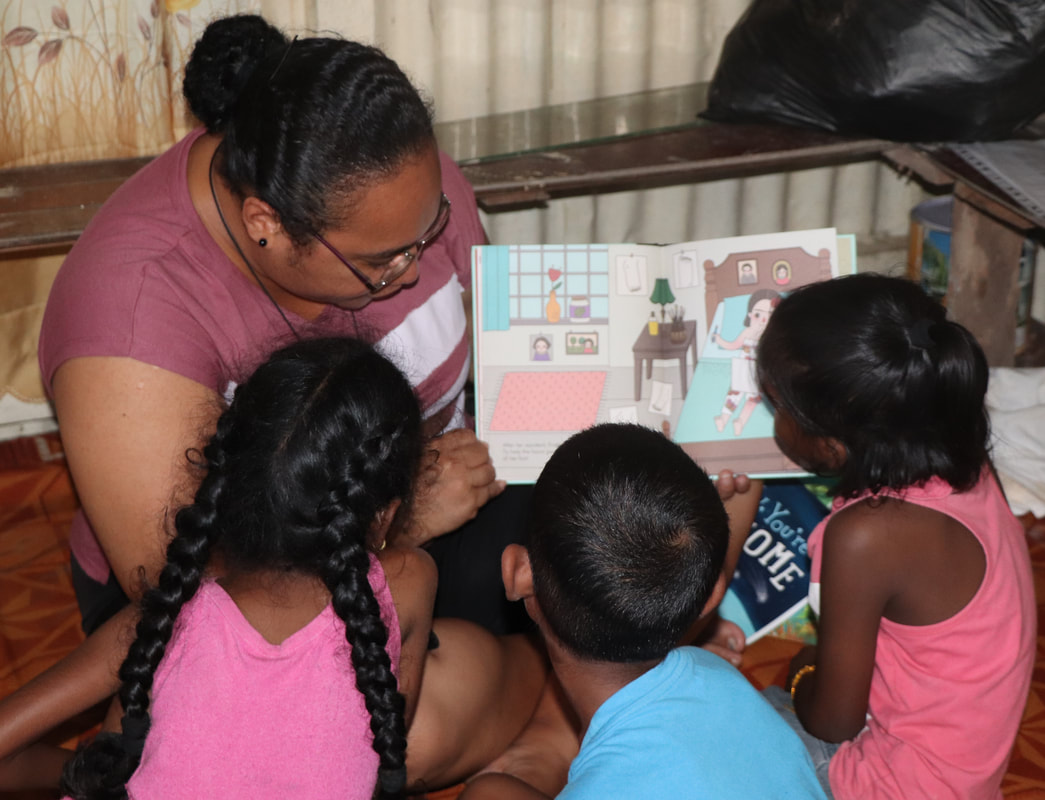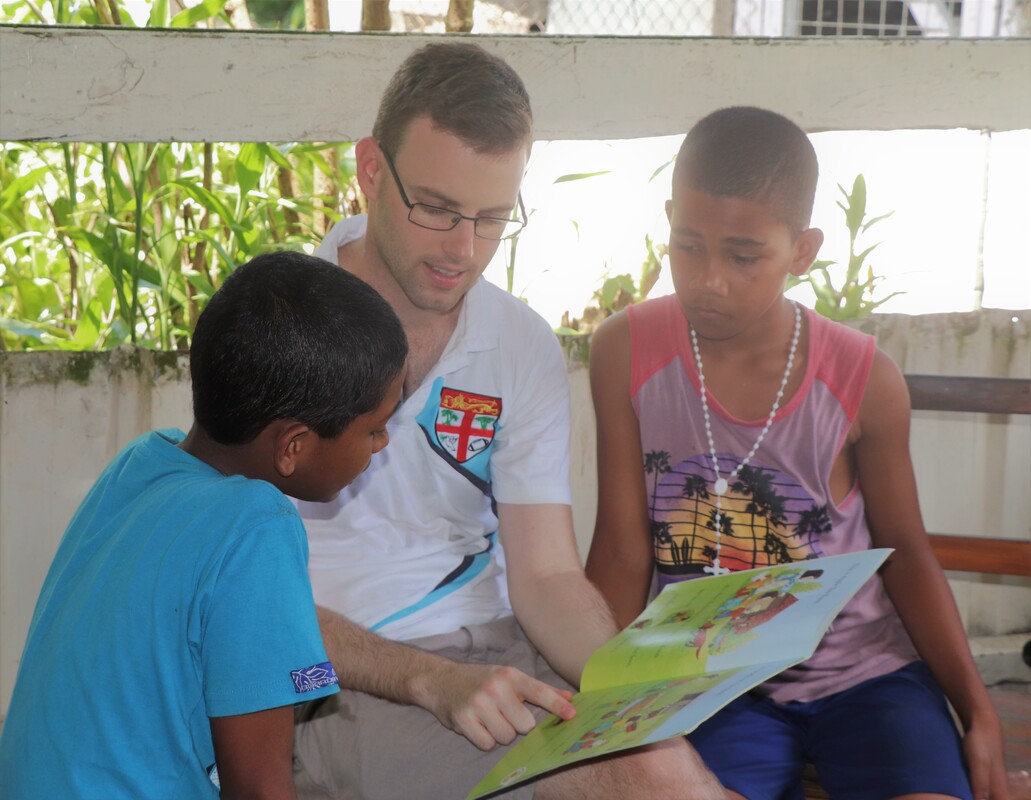ADI MARIANA WAQA REPORTS ON THE VUNILAGI BOOK CLUB IN FIJI
|
I started Vunilagi Book Club after learning that many children in Fiji struggled with the foundational skill of reading. Thinking back to my own childhood and the countless times I immersed myself in books of all sorts, I thought, what a travesty that any child should go without access to the literary world.
Vunilagi Book Club began with the sole objective of getting quality books and stories to children in settlement and rural communities around Fiji. I wasn’t a teacher or a librarian, but I knew of the different worlds and possibilities that books held for the young mind and imagination. The first few reading sessions in Nanuku (an informal settlement in Suva) failed. The children were uninterested, they flipped through the books without enthusiasm and when I read to them, they seemed more curious about my animated expressions than the story being read. I was later advised to try a different community because the kids were just not responding. |
|
But I pushed ahead and within a couple of months we began to see some changes. The children were more eager to read or to be read to, they showed up before the sessions began and helped set up the books, they also began to converse about the stories and characters with the Vunilagi volunteers.
A year on from our first reading session in February 2018, we now average between 30–35 children at every session in Nanuku – quite a feat when social factors pertaining to the children are considered. Many of them now arrive before we begin and are given space to look through books or draw pictures. The volunteers and I do our best to create a safe space for the reading to take place. We engage the children through conversations and try to encourage them to find their voice. One of the increasing challenges which we continue to face is the problem of illiteracy in children as old as 9, 10 or 11 years of age. There are those who need constant guidance with words while others cannot use phonics to sound out new words. We see the desire to read etched on their young faces but the frustration of not knowing how is all too consuming at times. |
|
Most recently a volunteer who was also a former teacher has begun remedial English sessions with some of the children and we’re monitoring these to see whether we can help the children improve their reading skills in this way Sometimes I walk away after a reading session and ask myself, ‘Are we even making a difference?’ But I’ve learned to value the little wins, such as a child showing new interest in a book or one that begins to listen when a book is read to them. There’s a young boy who used to run away from the reading sessions who has begun to take more interest in reading. The key to his change was giving him more one-on-one reading time. Although it started as a means of keeping him in one place, that small bit of extra attention has revealed him to be an eager and enthusiastic learner.
I believe that librarians, educators, and volunteers such as those of us at Vunilagi have a window of time where we can capture the attention of young potential readers. However, the education system, family situations, and social issues can be barriers to literacy for young children here in Fiji. But I believe that if we have the will and heart to build up young people through a foundational skill as reading, then we plant a seed that will help them flourish in the future. |
Vunilagi has had small beginnings in Nanuku, but we continue to push ahead promoting books and literacy through our reading sessions. We have dedicated volunteers who continue to invest into Vunilagi’s vision for a more literate generation in Fiji.
Reading and education plays an important role for women and girls. It’s an absolute necessity, especially in countries where there is a very strong patriarchal culture and system, such as here in Fiji. Once people – especially women – are literate; it means they can begin to form their own opinions and thoughts.
This includes studying and even critically analyzing their culture and the parts of it which suppress or are unjust towards women. Culture is dynamic, and therefore susceptible to change or reform; so if both girls (and boys) read and read widely, they’ll have the mindset to make changes that champion the dignified treatment of women in this country.
Reading can empower young minds to be informed and innovative. Reading creates leaders who are open minded and creative. Reading is a tool for young people to find their voice.
Adi Mariana Waqa; is the founder of Vunilagi Book Club, a small non-profit organization set up on the outskirts of Suva, capital city of Fiji, to encourage reading and literacy in some of Fiji’s marginalised communities. She is a great supporter of the power of reading and libraries in Fiji.
Reading and education plays an important role for women and girls. It’s an absolute necessity, especially in countries where there is a very strong patriarchal culture and system, such as here in Fiji. Once people – especially women – are literate; it means they can begin to form their own opinions and thoughts.
This includes studying and even critically analyzing their culture and the parts of it which suppress or are unjust towards women. Culture is dynamic, and therefore susceptible to change or reform; so if both girls (and boys) read and read widely, they’ll have the mindset to make changes that champion the dignified treatment of women in this country.
Reading can empower young minds to be informed and innovative. Reading creates leaders who are open minded and creative. Reading is a tool for young people to find their voice.
Adi Mariana Waqa; is the founder of Vunilagi Book Club, a small non-profit organization set up on the outskirts of Suva, capital city of Fiji, to encourage reading and literacy in some of Fiji’s marginalised communities. She is a great supporter of the power of reading and libraries in Fiji.



